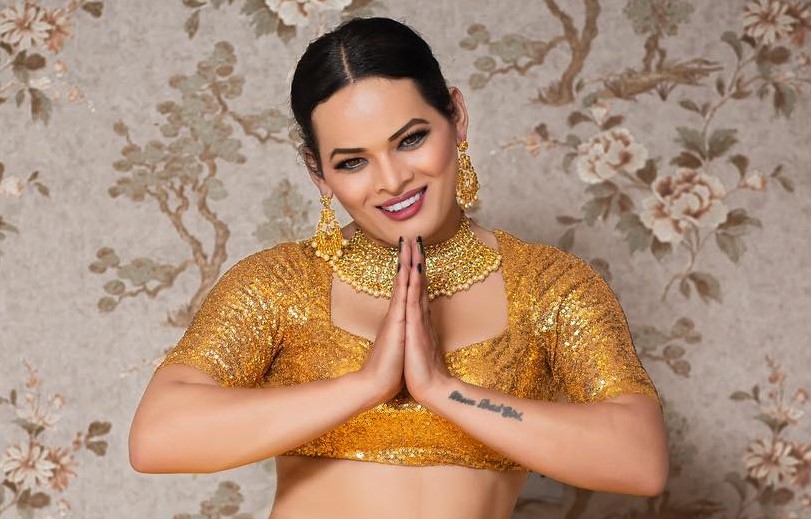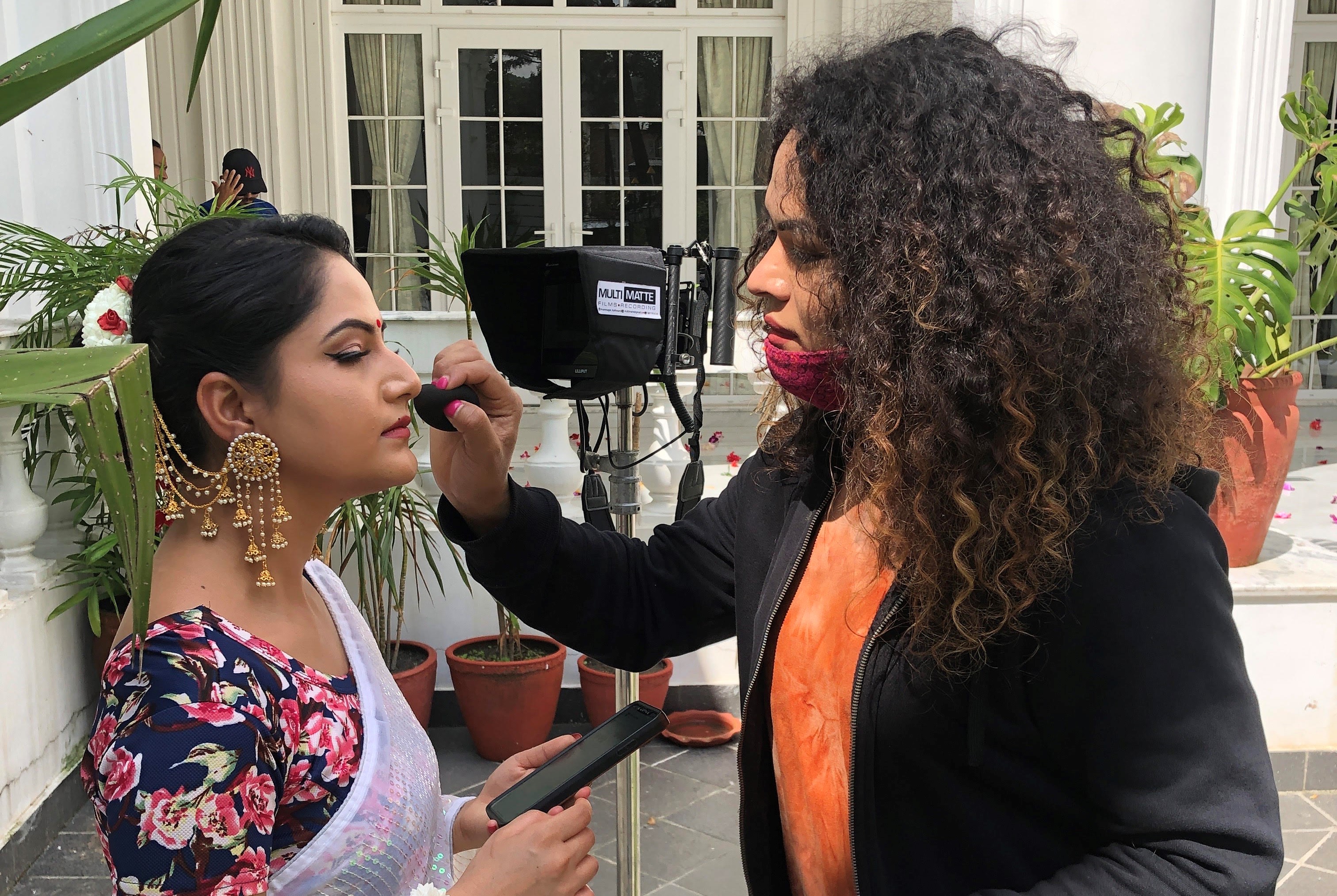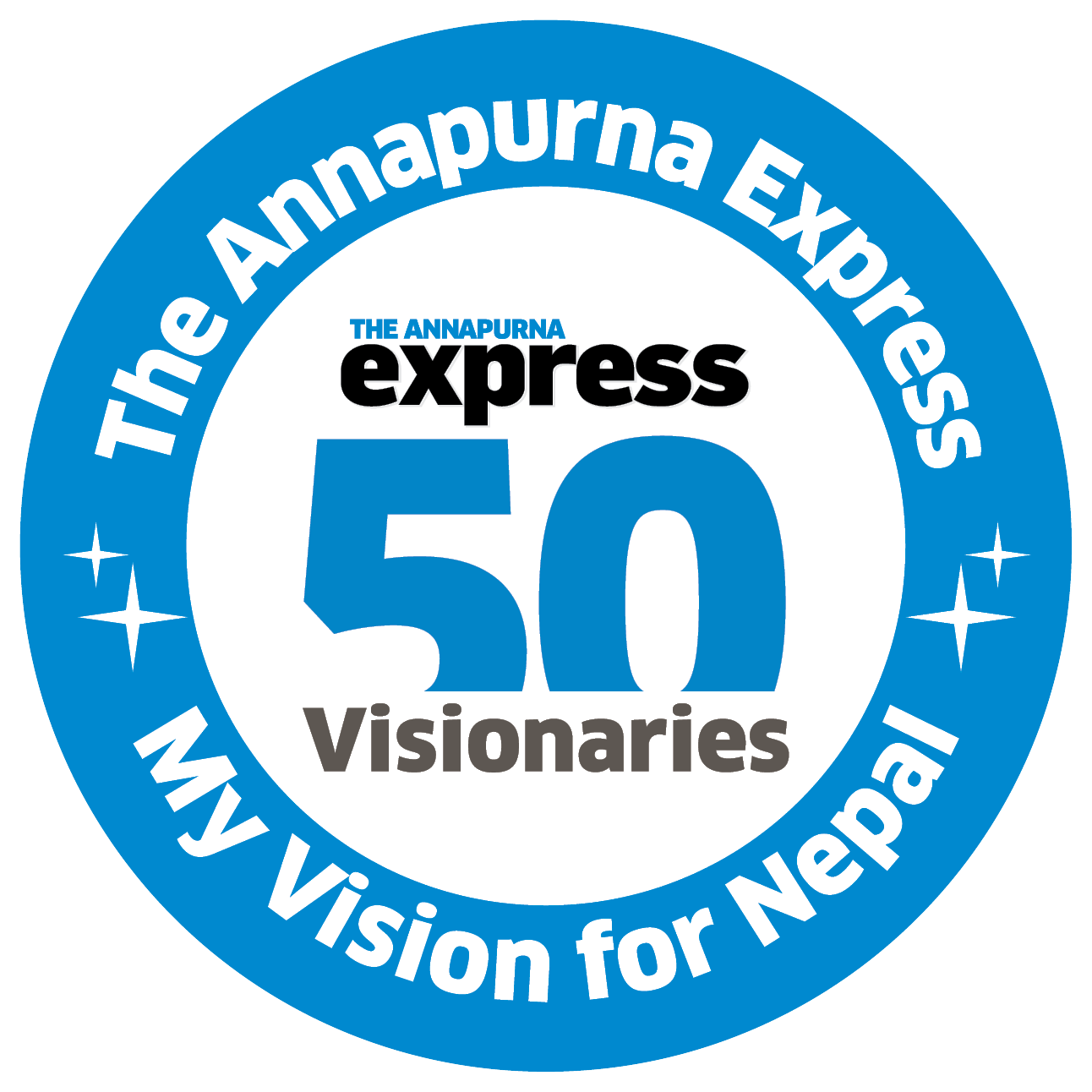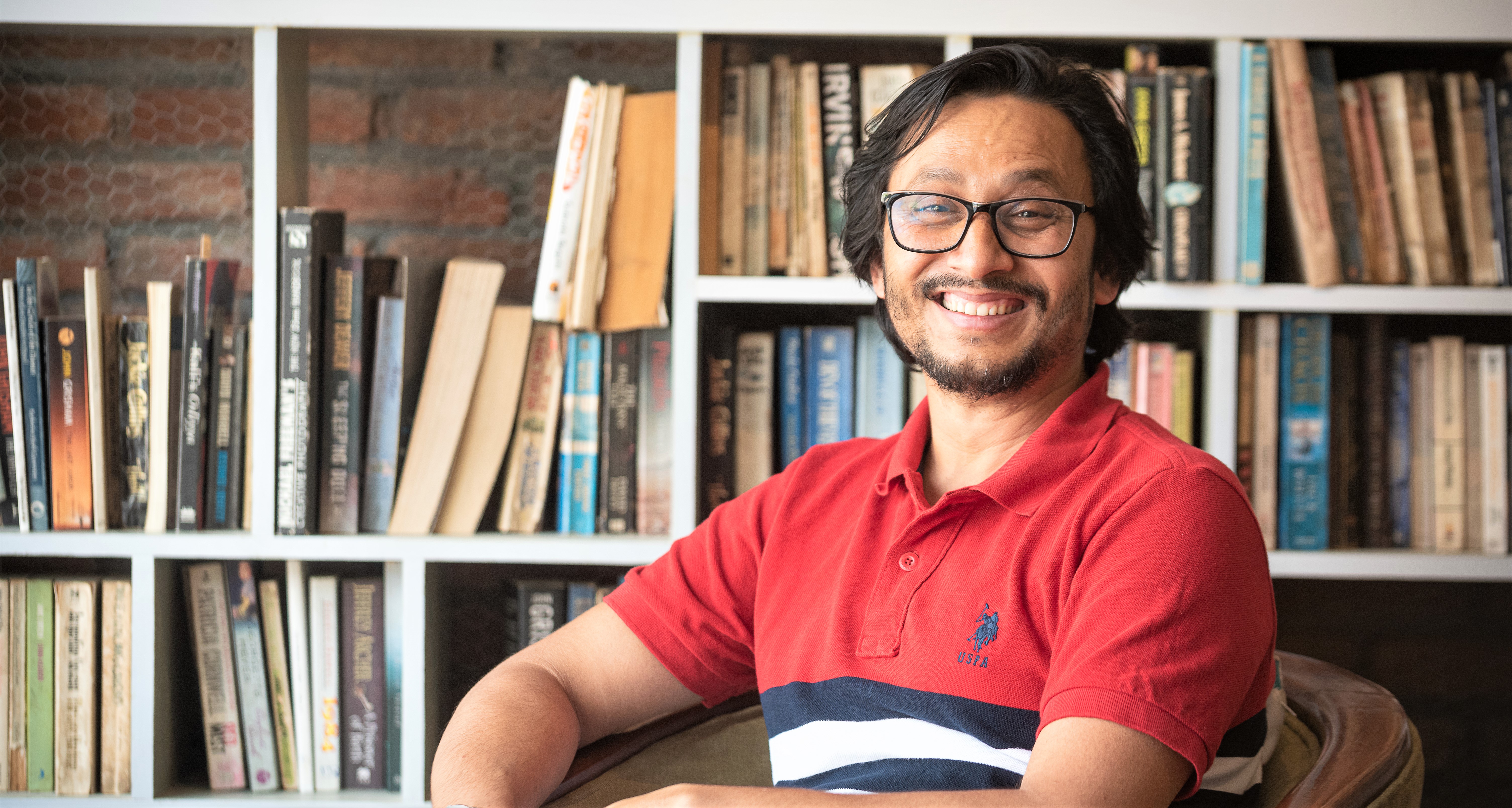My Vision for Nepal | Carve out space for LGBTIQA+ community in every sector

Carve out space for LGBTIQA+ community in every sector
Three ways to realize the vision:
1) By pushing ourselves for greater involvement in every sector.
2) By ensuring inclusive participation and jobs in governmental offices.
3) By helping design a queer-friendly curriculum with creative awareness programs.
It was very difficult for me to open up as a transgender. It was my seniors who inspired me to eventually make public my sexual orientation. I worked as a makeup artist and was able to establish myself in the industry. Yet there are countless transgender and other LGBTIQA+ people who are talented, skillful, and brainy and yet are deprived of job opportunities.
People like me have two options—either hide our gender or stay in the house, unemployed. Every workplace has either male or female employees. They have no other option in the application. Even in our citizenship, our gender is not recognized. I carry a ‘male’ citizenship even though I am not masculine. So, I want to fight to right these wrongs and to create equal space for the LGBTIQA+ community in every sector.
The major thing is, we never seek jobs that don’t match our skills. At the same time, we are more than ready to play our social role. In this pandemic, many organizations are doing relief distribution with volunteers but they don’t scout us out. We are asking for work in line with our skills, not our body structure.
I don’t solely blame the government and other stakeholders for every problem we face. We too should push our agenda. Many of us are afraid to open up but that is wrong. We should never underestimate ourselves.
In many gender-related programs and conversations, I barely see LGBITQA+ representation. No one wants to address our problems as they ignore the fact that we are also human beings and have a specific sexual orientation. Also, let’s not limit awareness programs to scripted speeches. Every concerned party should creatively organize programs so that common people will easily understand our issues.
The government can set the right precedent. It would be easy to establish ourselves if we can work with the government, which in turn would also help increase our social acceptance.
 Nilam Poudel does final touch-up on actress Barsha Siwakoti for a music video shoot.
Nilam Poudel does final touch-up on actress Barsha Siwakoti for a music video shoot.
Yet, things are changing. People used to gossip and backbite endlessly about us but these days they are more open-minded. They used to make harsh comments. We were not judged by our work but by our way of clothing, speaking, and appearance. Now, people at least say they support us. But instead of helping us establish ourselves, many are only interested in pulling our legs.
We started the LGBTIQA+ protests in 2000 and we still face the same challenges in making our voice heard. I think it will take many years for everyone to accept us as a part of human civilization. Until then, we will continue to fight for our equity. This social acceptance has to start at home. Regardless of people’s comments, we should never stop our campaign.
Education is the key to changing people’s mindset. So, there should be a queer-friendly curriculum in schools. The innocent kids should not be told that there are only two specific genders. They should be made aware about the LGBTIQA+ community from an early age.
We feel humiliated in many public places. At our only international airport, officers rudely question our sexual orientation. Abroad, they encourage and respect us at every step. There, unlike in Nepal, your talent and skills matter more than your sexual orientation.
In hospitals too, many educated professionals make fun out of us. We didn’t get a designated ward or room. They humiliate us even via their body language.
Many teachers in schools and colleges do not know how to denote us. The LGBTIQA+ community is broad but they use the collective ‘gay’ to refer to the community. That they don’t know is not the problem. The problem is that they don’t want to know. In a survey we conducted, teachers in only five out of 100 schools knew about our community.
Government officials had invited me to give an orientation class to volunteers for the upcoming census. There, a governmental officer denoted me as ‘brother’ even when I was in Kurtha Surwal, a female attire. It is disheartening to be humiliated by those on whom we have pinned the hope to lead the desired social change. Again, a good way to go about correcting society's erroneous beliefs about us is to acknowledge our existence in the school curriculum, and we are lobbying for it.

Quick Questions:
Who do you consider your role model/s?
First, my father—my hero. It is because of him I am where I am today. I also look up to Anuradha Koirala. Her work inspires me to work for social good. Lastly, Bhumika Shrestha, who belongs to our community and is always pushing our fight forward.
Do you have any favorite quotes or sayings?
‘I am available, not accessible.’
Which is your favorite movie?
English Vinglish. I watch it often.
related news
My Vision for Nepal | See Nepali women’s football team lift SAFF championship
April 18, 2022, 9:43 p.m.
My Vision for Nepal | A top global tourist destination
April 11, 2022, 6:19 p.m.
My Vision for Nepal | A clean country built on sustainable and socially inclusive waste management
April 5, 2022, 12:42 a.m.
My Vision for Nepal | Internationally acclaimed Nepali movies
March 28, 2022, 8:02 p.m.
My Vision for Nepal | Equal respect for all genders: male, female and queer
March 21, 2022, 7:11 p.m.
My Vision for Nepal | Economic growth and socio-economic development
March 14, 2022, 2:29 p.m.
My Vision for Nepal | Zero trafficking of Nepali people
March 7, 2022, 5:13 p.m.
My Vision for Nepal | A healthy, educated, and hospitable country
Feb. 28, 2022, 7:47 p.m.











Comments